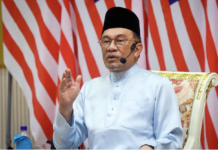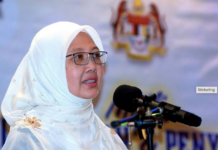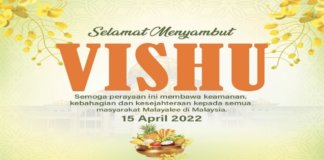PUTRAJAYA, April 22 — Malaysia is set to become an important hub for the development of the mineral industry in the future for having a variety of mineral resources that have the potential to be produced optimally, said Energy and Natural Resources Minister Datuk Seri Dr Shamsul Anuar Nasarah.
He said the initial study conducted by the Minerals and Geoscience Department (JMG) estimated the value of the country’s mineral resources at RM4.11 trillion, comprising metallic minerals worth RM1.03 trillion, non-metallic minerals (RM2.96 trillion) and energy minerals (RM0.12 trillion).
“Although this is only an estimation, we have to realise that Malaysia has invaluable mineral resources and could be one of the main contributors for the country’s economic advancement,” he said in his speech at the launching of the National Mineral Industry Transformation Plan 2021-2030 (TIM 2021-2030) by Prime Minister Tan Sri Muhyiddin Yassin here, today.
Shamsul Anuar said the diversity of mineral resources throughout the country did not only generates an income for Malaysia but also benefits the economic development in states through mining and export of minerals.
He said the attention to the principles of accountability and sustainability in conducting mining activities, exploration, processing and production of mineral-based products would be made the ministry’s main agenda so that it would give a direct impact on the people and avoid negative impact on the environment, biodiversity and forests.
“In the rush to explore the potential of these minerals, the mineral industry is also seen as an industry that causes a lot of damage to the environment, the country’s biodiversity system and the wellbeing of the local community,” he said.
According to Shamsul Anuar, the ministry was allocated RM87.2 million to carry out works related to the development of the country’s mineral industry under the 12th Malaysia Plan’s development expenditure for JMG.
They comprise activities such as the assessment of the country’s mineral resources, the development of an integrated mining and quarry monitoring system, the sustainability rating of the mining and quarrying industry using the Sustainable Development Indicators (SDI) method and the innovation and commercialisation of the country’s mineral products, he said.
On TIM 2021-2030, he said the framework was launched to streamline the management of the mineral industry so as to achieve sustainable growth and strengthen the economic fundamentals by making minerals the country’s new source of wealth.
Shamsul Anuar explained that the framework provides inclusive planning to develop the mineral industry comprehensively and in an integrated manner by transforming every level of the value chain, namely the upstream, midstream and downstream.
The framework is based on five main thrusts, namely governance and legislation, mineral industry value chain development, mineral resources mapping and inventory, technology and innovation as well as human capital development.
Shamsul Anuar added the TIM 2021-2031 aimed that in 10 years to come, the mineral industry in Malaysia would grow in a proper value chain from upstream to downstream, particularly for strategic minerals.
At today’s event, two Memorandums of Understanding (MoU) were signed between JMG and Ranhill Bhd, and between JMG and the Malaysian Chamber of Mines (MCOM), to collaborate in the development of the country’s mineral industry.
Shamsul Anuar said the collaboration was to further develop the mineral industry more efficiently and effectively, as well as to give importance to the sustainable mining aspect.
















